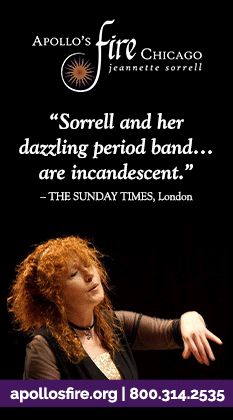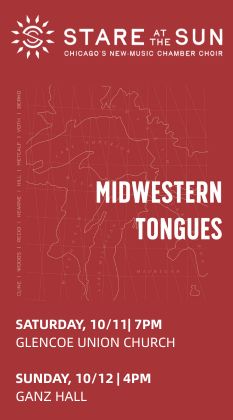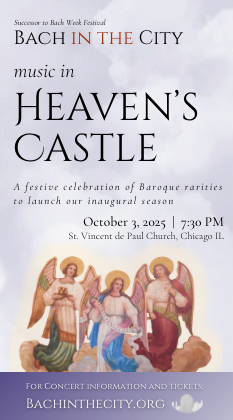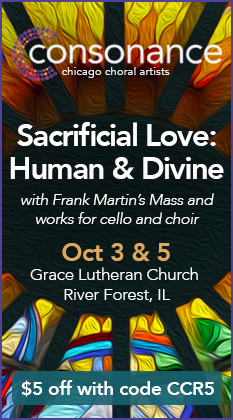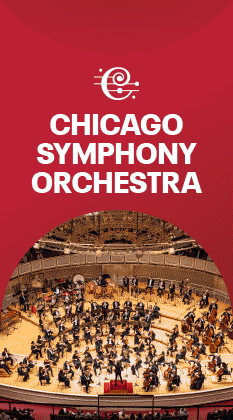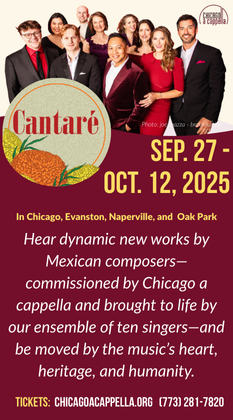DeYoung, Murphy illuminate dark songs at Ravinia
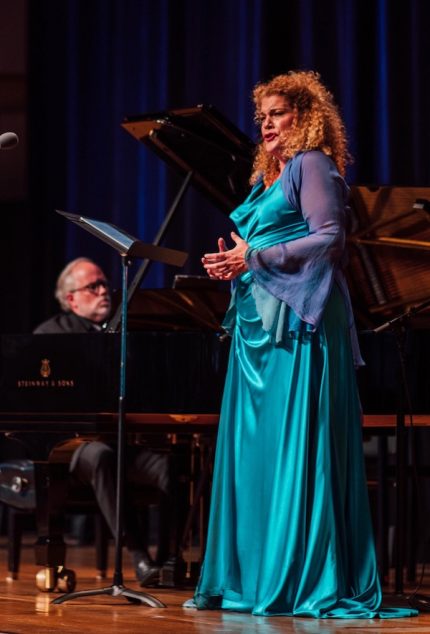
Three yearning protagonists mourned their missing beloveds on Thursday night at the Ravinia Festival, all portrayed by mezzo-soprano Michelle DeYoung, accompanied by pianist Kevin Murphy.
One of these protagonists is quite familiar: the title wanderer in Mahler’s Lieder eines fahrenden Gesellen. The other two were from less familiar works: Haydn’s cantata Arianna a Naxos and Korngold’s Lieder des Abschieds (Songs of Farewell).
Although Haydn composed over a dozen operas, his theatrical vocal music is little remembered. For those who know only his instrumental works, the style of Arianna a Naxos must come as a surprise. Haydn’s typical tunefulness and wit are absent, replaced with a more dramatic focus on painting psychological states.
DeYoung’s opulent timbre is not a natural fit for Haydn. But the long stretches of recitative in the cantata require a singer capable of communicating Arianna’s ever-changing moods: denial, pleading, grief, rage. DeYoung excelled in all of this.
She was aided in no small part by Murphy, who was celebrating his tenth anniversary as director of the vocal program at Ravinia’s Steans Music Institute. (The concert concluded with a video tribute from the many singers he has worked with.) His sparkling tone and careful attention to articulation enlivened Haydn’s piano part.
DeYoung was completely in her element in the Mahler and Korngold works. It’s a testament to DeYoung’s skill as a singing actress that she explored so much variety and nuance amid the nearly incessant bleakness of these songs.
Amidst the pervasive darkness, the opening of “Ging heut’ Morgens über’s Feld” was one of the few rays of sunshine. DeYoung’s interpretation was somewhat unusual—she began in full-throated triumph (with the song of the finch) and then each successive strophe grew less boldly confident (the bells already more tentative) until the somber conclusion was reached. She and Murphy sought maximal contrast between the stark funeral-march opening of “Die zwei blauen Augen von meinem Schatz” and the dreamy linden tree conjured in the song’s conclusion.
The final item on the program, Korngold’s Lieder des Abschieds,is in the same Straussian Late Romantic style of his opera Die tote Stadt.
Some of Murphy’s finest work of the evening was in “Mond, so gehst du wieder auf.” He delicately rendered all of the different degrees of softness Korngold calls for in the Debussy-like block chords. The concluding song of the cycle, “Gefasster Abschied,” abounds with treacherous leaps. But DeYoung navigated them with seeming ease, never letting them interfere with maintaining a shapely, flowing line.
The performances were prefaced by poetry readings by actress J. Nicole Brooks. Reciting poetry in between songs is no longer novel, and well-selected poems are crucial to make this business rise above gimmickry.
Only one poem really succeeded at this. Christina Rossetti’s “Ariadne to Theseus” connected with the Haydn and Rossetti’s “Requiem” appears in the Korngold. Brooks delivered a suitably subdued reading. Her exuberant rendition of Maya Angelou’s “When Great Trees Fall” also nicely fit the text.
However, her reading of Pablo Neruda’s “Tonight I Can Write” verged on bizarre. What should be one of poetry’s greatest expressions of romantic loss was marred by awkward pacing and glibly tossed-off lines.
James Conlon and the Chicago Symphony Orchestra present an all-Mozart program with violinist William Hagen 8 p.m. Friday at Ravinia. ravinia.org
Posted in Performances
